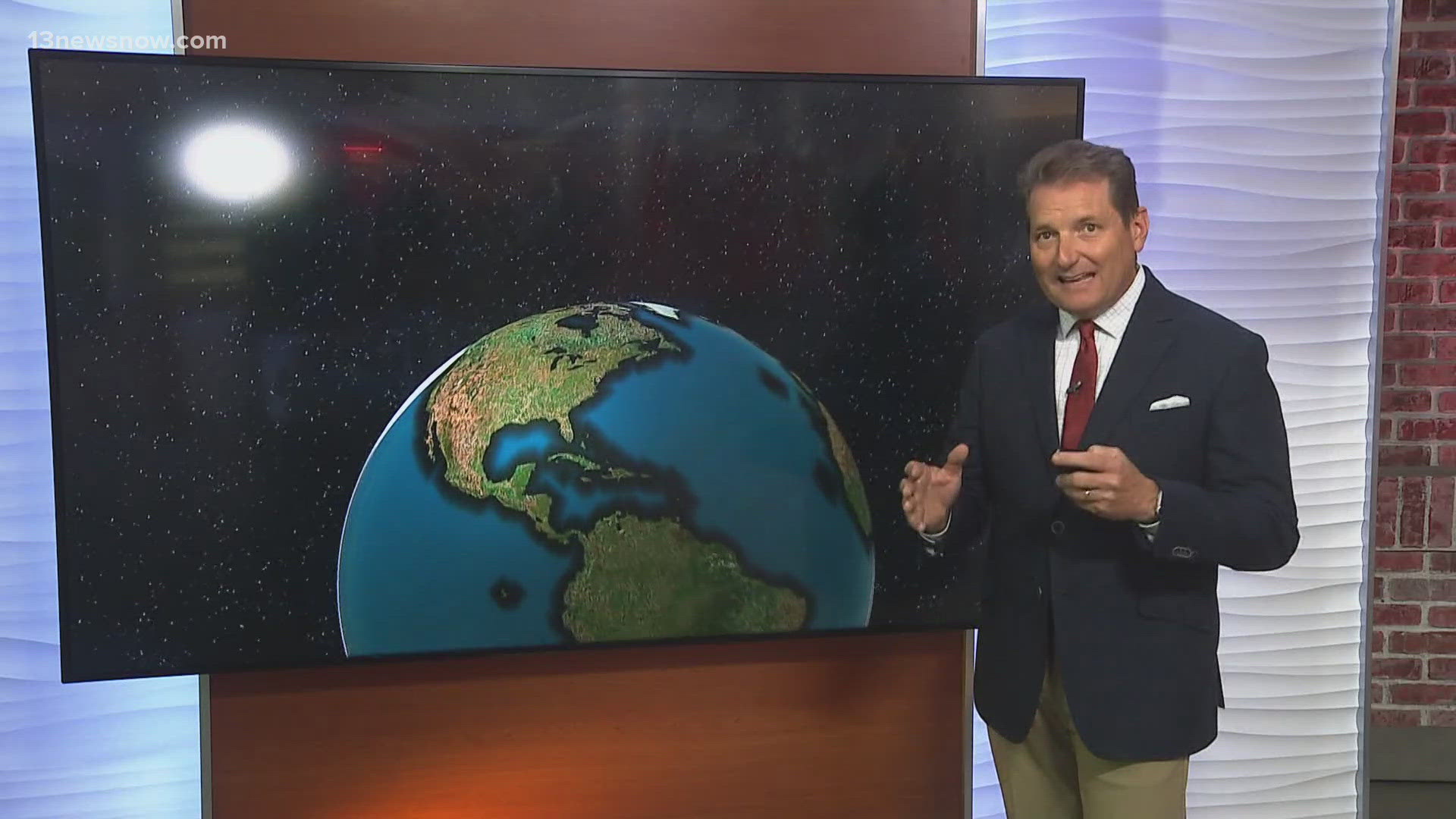NORFOLK, Va. — The Earth's rotation is slowing, and our days are getting longer. Really.
Not by much, but it is happening.
With some variation throughout the year, our present-day day length averages about 24 hours.
During the Jurassic Era, when dinosaurs roamed the earth, the day was only 23 hours long, and there were about 381 days in a year.
The slowing rotation has been happening for billions of years.
But NASA-funded research now finds that climate change is enhancing the process.
The primary cause of Earth's day-length increase is friction caused by the Moon's pull on tides.
Laser-ranging measurements show the Moon is moving farther away from Earth, roughly 3.78 centimeters, or about an inch and a half per year.
As the Moon gets farther away, the earth's rotation gets a little slower, and our days get longer. On average, it's been around 2.4 milliseconds per century.
But there is something else slowing the Earth's rotation, the Earth's mass balance.
The movement of ice sheets, glaciers, sea levels, and groundwater have been researched and studied throughout the 20th century. The rate of day-length increase due to the movement of ice and groundwater varied from .3 to 1.0 milliseconds per century.
More recently, the faster melting of ice sheets and glaciers, and sea level rise have transferred mass from the poles to oceans along the equator.
It's like an ice skater spinning, and then slowing by outstretching their arms.
From 2000-2018, the length-of-day increase due to mass-balance increased to 1.33 milliseconds per century.
The researchers believe if these climate changes continue on the current trajectory, they could surpass the effect of the Moon's tides on the Earth's spin rate.
Projections suggest that in 50 thousand years we'll need to add a leap second each day to keep our clocks accurate.
In about three million years we will gain an extra minute each day.
In 180 million years, our day length will be around 25 hours, and there will only be 350 days in a year.
No word yet on how that will affect how many vacation days we get.

